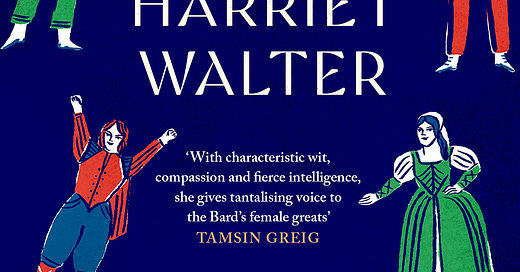182: Outward conditions notwithstanding
Harriet Walter & Shakespeare's women, English Meet, Sarah Churchwell on 'The Great Gatsby', AI & English, Marianne Faithful & Byron, Sheila Heti, Philip Larkin & more.
Keep reading with a 7-day free trial
Subscribe to The Fortnightly from Julian Girdham to keep reading this post and get 7 days of free access to the full post archives.




